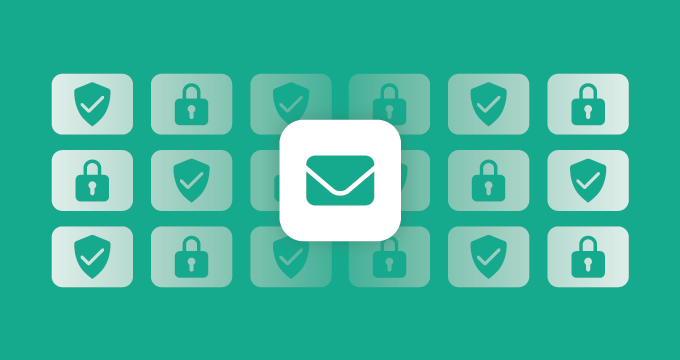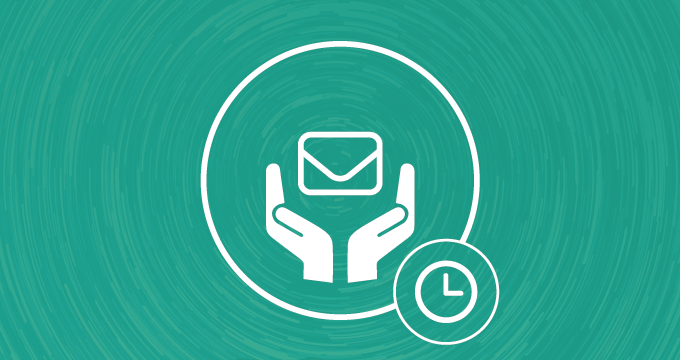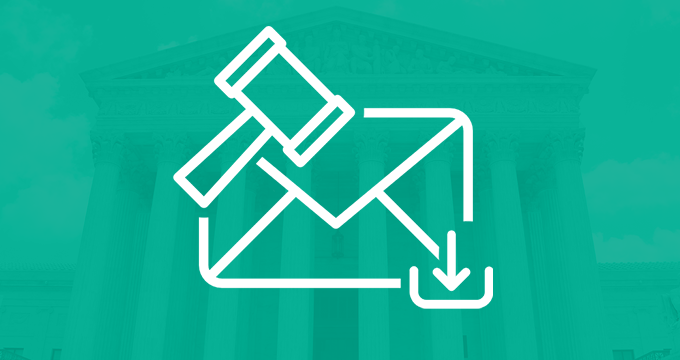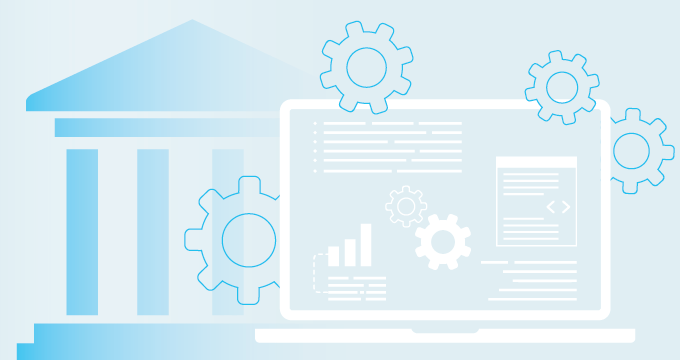If your organization uses email (and most do), you need to implement an email privacy policy.
This article explores the nuances of such policies, particularly in light of the Email Privacy Act, offering insights for both employers and employees.
Whether you’re an IT Director, Compliance Officer, or just someone looking to understand the interplay of email communication and privacy in the workplace, this guide is for you.
Email Privacy Laws
These laws serve as a guide for both employers and employees, outlining rights, responsibilities, and limitations regarding email communication.
Let’s explore some of the key laws that shape email privacy in the workplace.
Electronic Communications Privacy Act (ECPA)
The ECPA is a pivotal law in digital communication. It extends legal protection against wiretapping, but also includes electronic communications like emails. The Act prohibits unauthorized interception or disclosure of electronic communications.
However, it also provides exceptions, particularly relevant to employers, such as the “business-use exception”, which allows employers to monitor email communications in the ordinary course of business.
Stored Communications Act (SCA)
The SCA, which is part of the ECPA, specifically protects the privacy of the contents of files stored by service providers and of communications in electronic storage.
For workplace emails, this means that there are legal restrictions on accessing stored electronic communications, including those on corporate email systems, without proper authorization.
Computer Fraud and Abuse Act (CFAA)
Originally designed to combat hacking, the CFAA can also apply to email privacy in the workplace. This law makes it illegal to access a computer without authorization or in a way that exceeds authorized access. It potentially covers situations where employees access their colleagues’ email accounts without permission.
State laws
While federal laws provide a broad framework for email privacy, state laws can introduce additional layers of complexity. Each state in the U.S. may have its own set of regulations that impact how email privacy is managed in the workplace.
These state-specific laws can sometimes offer more stringent protections or unique provisions not covered by federal legislation.
Let’s explore a few examples:
- California — Known for its robust privacy laws, California has enacted several regulations that impact email privacy. The California Electronic Communications Privacy Act (CalECPA) is particularly notable. It requires government entities to obtain a warrant before accessing electronic communications, including emails. This law also extends protections to include geolocation data and metadata.
- Delaware — Delaware has a unique law that focuses on email privacy after an employee’s death. The Fiduciary Access to Digital Assets and Digital Accounts Act allows executors and other fiduciaries to manage digital content, including emails, of deceased individuals, reflecting the evolving nature of digital legacy.
- Massachusetts — Massachusetts emphasizes the protection of personal information, including in emails. The Massachusetts Data Security Law requires organizations to implement a comprehensive written information security program that includes monitoring and ensuring the security of personal information sent over email.
- Illinois — In Illinois, the Right to Privacy in the Workplace Act prohibits employers from requesting access to employees’ personal online accounts, which can extend to personal email accounts, even if accessed on a work device.
Sector-specific laws
In addition to general privacy laws, there are also sector-specific regulations that impact email privacy in certain industries. Understanding these laws is crucial for organizations operating in these sectors to ensure compliance in their email communications.
- Health Insurance Portability and Accountability Act (HIPAA) — In the healthcare sector, HIPAA plays a critical role. It includes strict provisions for safeguarding electronic protected health information (ePHI). This extends to email communications, mandating that any ePHI shared over email must be adequately protected to ensure confidentiality and integrity. Healthcare providers, insurers, and other entities dealing with ePHI must adhere to these regulations in their email practices.
- Gramm-Leach-Bliley Act (GLBA) — In the financial industry, the GLBA imposes requirements on how financial institutions handle the personal information of individuals. This includes ensuring the security and confidentiality of customer records and information, which can impact how emails containing such information are handled and protected.
- Financial Industry Regulatory Authority (FINRA) — FINRA sets rules for communication in the financial services industry, including guidelines on email communications. These rules are designed to ensure that communications with clients and the public are transparent, fair, and not misleading. Firms under FINRA’s jurisdiction must have policies in place for reviewing and supervising electronic communications, including emails.
- Family Educational Rights and Privacy Act (FERPA) — In the education sector, FERPA is a key law that protects the privacy of student education records. For educational institutions, this means that any email communication containing personally identifiable information from student records must be securely managed and shared only with authorized parties.
Employees: Email Privacy Rights and Practical Tips
Understanding the rights of employees regarding email privacy is crucial in today’s workplace. This not only ensures a fair and respectful work environment but also helps in aligning organizational practices with legal standards.
Here are some specific rights employees have and how they are shaped by existing laws and company policies.
Specific employee privacy rights
- Right to Information and Transparency — One of the fundamental rights of employees is to be informed about email monitoring policies. Employers are typically required to notify employees if their work emails are subject to monitoring. This includes being transparent about the nature and extent of the monitoring.
- Right to Privacy in Personal Communications — While using company email systems for personal use is often discouraged, employees do retain some privacy rights in personal communications. This is particularly relevant in cases where personal emails are sent using a work account but are clearly marked as personal.
- Right to Consent — In some states, employee consent is required for certain types of email monitoring. This means that employees have the right to be aware of and agree to the monitoring methods and extent before they are implemented.
Practical tips for employees
- Understand Company Policies — Get familiar with your organization’s email privacy and usage policies. Knowing what’s expected can help you use your work email appropriately.
- Use Work Email for Professional Purposes — Limit the use of your work email to professional communication to minimize privacy risks.
- Be Cautious with Sensitive Information — Avoid sending sensitive personal or business information over email unless necessary. When you do, ensure it’s done securely.
- Report Concerns — If you suspect a violation of email privacy or a security breach, report it to the relevant department immediately.
Employer Responsibilities
In the context of email privacy, employers shoulder significant responsibilities. Compliance with legal standards, while balancing the need to monitor workplace communication, requires a careful approach.
Creating a transparent monitoring system
Clear Policy Communication — Employers need to establish clear, transparent email monitoring policies and communicate them effectively to all employees. This includes detailing the scope of monitoring, the methods used, and the rationale behind it.
Obtaining Consent — Where required, obtaining explicit consent from employees for email monitoring is crucial. This consent should be informed and documented to avoid any legal complications.
Data security and protection measures
Implementing Robust Security Protocols — Employers are responsible for ensuring the security of their email systems.
This involves using encryption, firewalls, and other security measures to protect against external threats and internal breaches.
Responding to privacy breaches
Established Protocols for Breach Response — In case of a privacy breach, having a predefined response plan is essential. This includes investigating the breach, taking steps to mitigate damage, and complying with legal requirements for breach notification.
Continuous Improvement Post-Breach — After a breach, it’s important to review and update security measures and policies to prevent future incidents.
Regular policy review and employee training
Ongoing Policy Updates — The digital landscape is continuously evolving, and so are laws related to electronic communications. Regular reviews of email privacy policies ensure they remain relevant and compliant.
Consistent Employee Training — Regular training ensures employees are up-to-date with the latest email privacy policies and understand their role in compliance and security.
For employers, staying compliant with email privacy laws is not just a legal requirement but also a cornerstone of trust and integrity in the workplace.
By responsibly managing email monitoring and ensuring the privacy and security of communications, employers can create a more secure, respectful, and legally compliant work environment.
Tools and Technologies for Enhancing Email Privacy
Using the right tools and technologies is essential for effectively managing email privacy.
Here are some key tools and technologies, including data archiving solutions, that can significantly improve email privacy management.
- Email Encryption Tools — Encryption is fundamental in securing email communications. Tools like PGP (Pretty Good Privacy) encrypt the content of emails, making them readable only by intended recipients. This is crucial for protecting sensitive information from unauthorized access during transmission.
- Data Loss Prevention (DLP) Solutions — DLP tools are designed to prevent unauthorized transmission of sensitive information. They can be configured to detect and block the sharing of confidential data, reducing the risk of data leaks or breaches.
- Access Management Systems — Controlling access to sensitive information is a key aspect of email privacy. Access management systems ensure that only authorized personnel can access certain emails or email archives, based on predefined policies.
- Employee Training Platforms — Regular training on email privacy policies and best practices is crucial. Online training platforms can be used to deliver this training efficiently, ensuring employees are up-to-date on the latest policies and practices.
- Data Archiving Solution — Implementing an effective data archiving solution is pivotal for managing email privacy. These solutions store emails in a secure, searchable archive, ensuring long-term preservation and accessibility for compliance purposes. At the same time, they allow employers to monitor email usage within legal and ethical boundaries. They can flag potential policy violations and proactively detect issues like email harassment, canceling the need for separate email monitoring software.
Archiving helps in efficiently retrieving old emails for legal or compliance reasons while keeping the active email system uncluttered. It also adds an extra layer of security by providing controlled access to historical email data. - Cloud-Based Email Security Services — Cloud-based services offer robust security measures, including advanced threat protection, spam filtering, and secure email gateways. These services provide an additional layer of security for email communications, especially useful in today’s environment where remote work is common.
By integrating these tools and technologies into their email management strategies, organizations can significantly enhance the privacy and security of their email communications.
Jatheon’s cloud email archiving solution can help you capture and retain emails in line with compliance requirements.
Conclusion
Understanding email privacy at work needs joint efforts from employers and employees.
By understanding the legal landscape, establishing clear policies, respecting employee rights, and using appropriate tools and technologies, organizations can create a secure and compliant email environment.
Read Next:Email Retention Policy Best Practices for 2024 |
FAQ
What are the key elements of an effective email privacy policy?
An effective email privacy policy should clearly outline the scope of email monitoring, employee rights, data protection measures, procedures for policy violations, and compliance with legal standards. Transparency and regular updates are also crucial.
How can organizations ensure compliance with email privacy laws?
Organizations can ensure compliance by staying informed about federal and state laws, regularly reviewing and updating their policies, conducting employee training, and using appropriate monitoring, archiving and security tools.
What rights do employees have regarding email privacy in the workplace?
Employees generally have the right to be informed about email monitoring, a reasonable expectation of privacy for personal communications, and protection against unauthorized access to their emails.
What steps should an employer take in the event of an email privacy breach?
Employers should immediately investigate the breach, mitigate the impact, notify affected parties as required by law, and take corrective actions to prevent future breaches.
Can employers monitor all employee emails?
While employers can monitor emails for legitimate business purposes, they must do so within the legal framework, respecting employee privacy rights and adhering to any consent requirements.











